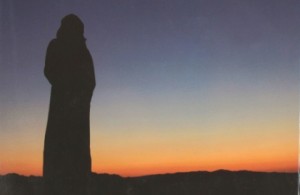Summary of 9-28-12
Today, in spite of early morning torrential rains, a lively group of faculty and students from across CUNY and NYC identifying as scholars in English, literary studies, sociology, developmental psychology, anthropology, political science, fine arts, digital technology, and education met to launch the “Narrating change” Center for the Humanities Seminar.
Professor Jerome Bruner, New York University Law School, one of the most brilliant and influential contemporary writers about culture, thinking, and narrative, joined us to offer inspiring remarks. The agenda for this inaugural session of the seminar was to hear Professor Bruner’s reflections on history and the ongoing interest in narrative, to introduce participants, to discuss readings by Jacques Ranciers and Bruner, as well as his live remarks, and to propose ideas for goals and activities of the working group this 2012-2013 academic year.
Jerome Bruner, internationally acclaimed public speaker, author, and thinker, chose to meet with the working group for our first meeting, rather than doing a large public event. This was a rare and precious opportunity for our seminar. Professor Bruner offered a range of personal and studied insights about narrative and narrating from childhood observations about the multiple meanings of symbols (like U.S. MAIL), participation in political, academic, and everyday life, to favorite literary works (Death in Venice) and favorite stanzas of poetry (including lines from Prufrock and Renascence).
Professor Bruner’s prepared remarks highlighted the uniqueness and internal tensions of narrative as a social and reflective means of human culture – embodying some of the mysteries of conscious life with the beauty and challenges of its ambiguous nature, including the fanciful and the literary, deviations from the expected, possibility and norms, paradigmatic factual which can close and narrative possibility which can open alternatives, disciplinary pressures like that in psychology to be “scientific” and thus to explain and focus on givens, while at the same time in physics, the culturally canonical and contrasts/alternatives to the canons as narrative does both, scholars were seeking unknown possibilities, ambiguity and normality, resistance to closure, tricks with narrative structure to take the obvious and how that/how it did not happen, and more.
Group discussion extended these ideas, reversed them, and marked their place for our ongoing play and reflection. Insights the group offered included the appeal of narrating in psychology to foreground personal marginalized voices while then closing down tensions like contradiction and alterity in favor of coherent, authentic selves reflected in narratives; the literary studies perspective that complicates author, narrator, character, and meaning; the exploitation of the possible, ambiguous, non-dualistic and over-rationalized qualities of narrative by hegemonic powers that can use those qualities to mask inequalities and injustices; the diverse scales of the conflicts within narrative (among perspectives, uses of historical genres [such as paintings of catalogues]), tensions between presumed reality, fiction, and falseness; the use of alternative stories; how context including power around narratives figures into narratives; how different narrative genres (literature, pulp fiction, mystery, autobiography) figure into these tensions; the importance of narrative detail for lived experience in the reader/listener; questions about whether and how digital life experiences today are narratively drenched; the politics of narrating, whether and how it is/is not/can be subversive; whether/how narrative conditions us to the powerful realities; whether/how the postmodern turn embracing narrative for how it opens alternatives and ambiguity also take us away from ability to make assertions, disruptions in narrative and what these can do to help us see anew.



